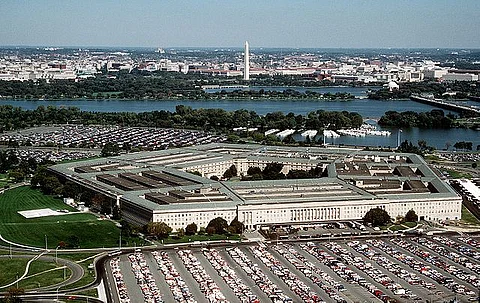

Trump’s Covert Directive for Military Force
President Donald Trump has secretly authorized the Pentagon to prepare military options against Latin American drug cartels designated as "foreign terrorist organizations," including Mexico’s Sinaloa Cartel and Venezuela’s Tren de Aragua. While no immediate strikes are planned, the directive empowers U.S. forces to conduct naval interdictions, targeted raids, and intelligence operations against these groups. Secretary of State Marco Rubio framed the move as necessary to treat cartels as "armed terrorist organizations," not mere criminal networks.
Mexico’s Firm Rejection of Intervention
Mexican President Claudia Sheinbaum categorically ruled out U.S. military operations on Mexican soil, stating: "There will be no invasion of Mexico". She confirmed prior U.S. notification about the directive but emphasized it excludes permission for cross-border actions. Sheinbaum has consistently denounced such proposals as sovereignty violations, recalling her May 2025 rebuke of Trump’s offer to deploy troops: "Our sovereignty is not for sale". Legal experts echo her concerns, noting unilateral strikes would violate international law and the UN Charter’s prohibition on force against sovereign states.
Doubled Bounty on Maduro Sparks Regional Tensions
The authorization coincides with the U.S. doubling its reward for Venezuela’s President Nicolás Maduro to $50 million, accusing him of collaborating with the Sinaloa Cartel to traffic cocaine. Attorney General Pam Bondi alleged nearly 7 tons of seized cocaine were "traced directly to Maduro". Both Mexico and Venezuela dismissed the claims with Sheinbaum stating Mexico "has no evidence" linking Maduro to cartels and challenged the U.S. to "show proof". Venezuelan Foreign Minister Yvan Gil condemned the bounty as "the most ridiculous smokescreen ever seen" and "political propaganda".
Legal and Strategic Risks
Analysts warn Trump’s approach faces major hurdles. The Posse Comitatus Act bars U.S. military domestic policing, while international law permits force abroad only in self-defense, a threshold unmet here. Past proposals (e.g., missile strikes on Mexican labs) were also rejected as "acts of war" by Trump’s own Defense Secretary Mark Esper. As well as that, designating cartels as terrorist groups risks sanctioning civilians in cartel-controlled areas, who often pay "taxes" under coercion.
Regional Backlash
Brazil and other Latin American nations have condemned recent U.S. actions, including tariffs threatening Brazil’s Bolsonaro trial as "unacceptable interference". The cartel designations and military threats deepen distrust, with Mexico advancing constitutional reforms to bolster sovereignty protections.